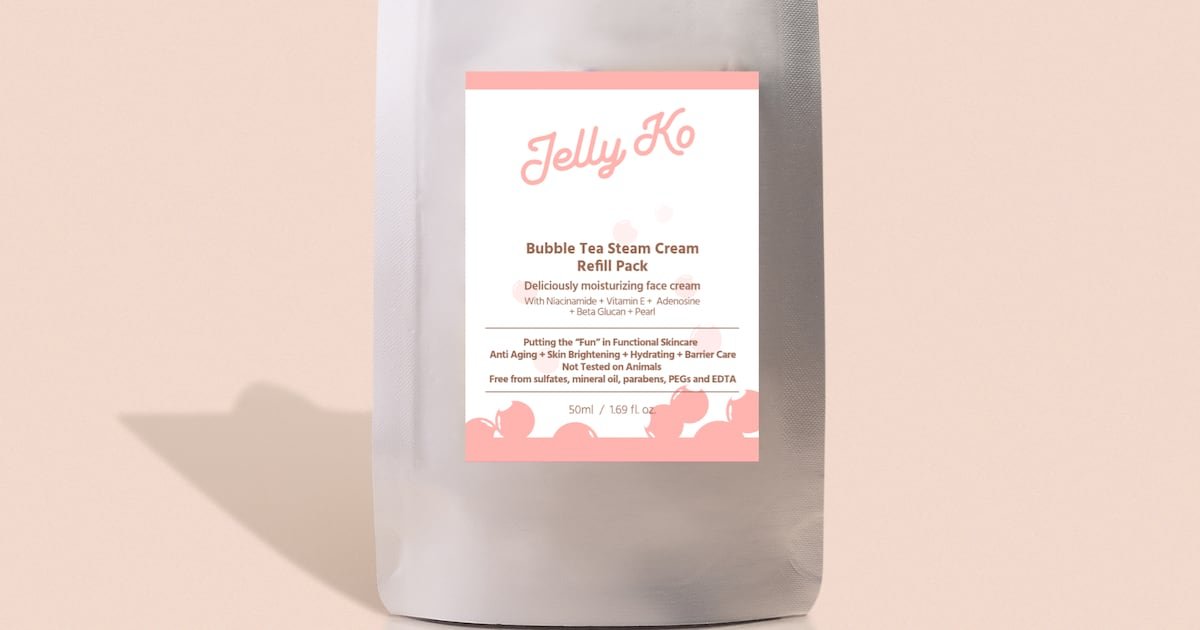Funding & Investment in Travel
Limelight Diamonds secures $11M to fuel its retail growth
The leader in the LGD sector will use the funds for its aggressive expansion plans of opening 100 stores by 2026
MUMBAI, India, Feb. 4, 2025 /PRNewswire/ — Limelight Lab Grown Diamonds, India’s largest LGD jewellery brand, raises close to $11 million (INR 90 Crore) in a funding round from leading fund houses, reputed broking firms, family offices and the promoters.
With this fresh capital, the Company aims to bolster its operational growth, strengthen the Brand’s design offerings, and increase its retail footprint in the country to maintain its leadership position in the Lab Grown Diamond sector.
Founded by Pooja Madhavan in 2019, Limelight has emerged as the largest & fastest growing retail brand in the lab grown diamond jewellery sector with 30+ operational stores, 30 shop-in shops across 35+ cities in India. A one-of-a-kind fully vertically integrated brand, the Company is backed by two major powerhouses – the world’s largest producer of LGDs (The Bhathwari Group) as well as Asia’s largest jewellery manufacturer (The Emerald Group).
With rapid growth seen by the Brand in the last 2 years and plans of extensive offline and online expansion, the customer focused Brand is aligning with consumer trends towards affordable and sustainable luxury.
The investment in Limelight comes at a time when consumers are increasingly shifting to lab grown diamond studded jewellery influenced by deepening awareness on LGDs and a shift towards design and ethos led jewellery preferences. Reports suggest that the LGD sector in India is growing at 15-20% annually and this will further facilitate the Brand’s expansion plans in India.
Commenting on the milestone, Mrs Pooja Madhavan, MD of the company, expressed gratitude towards her customers and stakeholders. “The investment comes at a perfect time when the LGD sector is seeing a disruptive boom in India and will help us accelerate our growth to reach newer heights. We are on a mission to disrupt India’s $80 billion jewellery market by offering consumers the widest choice of designer jewellery at the sweetest price points. We remain focused on making Limelight the largest sustainable luxury jewellery brand from India to the world.”
About Limelight Lab Grown Diamonds Ltd:
Headquartered in Mumbai, Limelight has emerged as India’s largest lab grown diamond jewellery brand specialising in pure CVD diamonds. In the last two years, the brand has seen a rapid growth with the widest reach for LGD jewellery with 30+ Stores (EBOs), 30+ shop-in-shops spread across 35+ cities. Being the oldest brand in the country spreading awareness and education on lab grown diamonds, Limelight has become synonymous to being consumer’s most trusted brand in the realm of sustainable jewellery offering superior quality, exclusive designs and premium finish. A fully vertically integrated brand, Limelight is also the only ‘green’ certified LGD jewellery brand with an ESG+ certification. For more information, visit www.limelightdiamonds.com.
Photo: https://mma.prnewswire.com/media/2612133/Limelight_Diamonds_Pooja_Madhavan.jpg
Logo: https://mma.prnewswire.com/media/2050541/4368585/Limelight_Logo.jpg

Funding & Investment in Travel
Startups Supplying Scarce Materials And Rare Earth Elements See Abundant VC Funding

It’s well known that scaling cutting-edge technologies and battery production requires supply-constrained materials such as lithium, cobalt and nickel, as well as rare earth elements sourced from just a few locations on the planet.
Tech giants, automakers and other industrial players have long been cognizant of the supply chain risks. And recent headlines show concerns increasingly spilling over into geopolitics.
Startups haven’t been sitting this one out either. In the past few quarters, a growing roster of venture-backed companies has secured funding for areas including battery and magnet recycling, rare earth-focused mining technology, and even extracting materials from space.
Collectively, they’ve raised billions to date, including some large recent rounds. To illustrate, we used Crunchbase data to put together a list of a dozen companies, most funded in the past year, with a mission of supplying scarce materials through recycling or at their original source.
Most venture money going to recycling
The largest investment recipients are focused on recycling, looking to extract scarce materials from devices, scrap, batteries and industrial machines no longer in use.
In this arena, the two most heavily funded startups — Massachusetts-based Ascend Elements and Nevada-based Redwood Materials — are both focused on batteries and have been around a while. Together, they’ve pulled in nearly $3 billion in equity funding and over $1 billion in debt financing to date.
Notably, however, both companies secured most of their funding between 2021 and 2023. That coincided with a more bullish period overall for cleantech equity funding. Since then, sustainability-focused investment has trended lower, with U.S. investors in particular seeing impacts from the Trump administration dialing back support for clean energy initiatives.
Outside the U.S., meanwhile, we’ve seen some more recent, sizable rounds around critical materials recycling.
Out of Canada, Cyclic Materials announced in June that it raised $25 million to build a rare earth recycling facility in Kingston, Ontario. It will take magnet-rich scrap and retired industrial products to recycle rare earth elements used in EV motors, wind turbines and consumer devices. Per Cyclic, it’s an undertapped market, as today, less than 1% of rare earth elements are recycled.
On the earlier-stage side, two German companies also raised good-sized financings. Cylib, which develops technology to draw critical raw materials from end-of-life batteries, picked up a $64 million Series A last spring. And at seed-stage, Munich-based Tozero secured $12 million for a plant to recover raw materials from recycled lithium-ion batteries.
Mining attracts capital too, following MP Material’s footsteps
Startup capital is also flowing to ventures focused on mining critical materials.
Before looking at the latest funding picks, however, it seems worth pointing out that MP Materials — the company generating headlines of late around rare earth mining — is itself a stock market success story with some Silicon Valley roots.
Shares of Las Vegas-based MP shot higher this month following news that the U.S. Defense Department agreed to buy an equity stake in the company, which operates the country’s only rare earth mine in Mountain Pass, California. A few days later, Apple announced a $500 million commitment to buy rare earth magnets developed at an MP Materials’ facility in Fort Worth, Texas.
Notably, MP was one of the earlier companies to ride the SPAC boom, making its public market debut in 2020 through a merger with a blank-check company. The deal included an equity investment from backers including venture capitalist and onetime “SPAC king” Chamath Palihapitiya.
More recently, we’ve seen a few startups nab venture and debt financing around mining efforts and technologies targeting scarce metals.
Montreal-based Torngat Metals secured $120 million in debt financing last month from government sources for a rare earth mining project in Strange Lake, located in Quebec’s northernmost region. It touts the project, which includes “detailed caribou avoidance procedures,” as a strategically important national initiative in a time when Chinese domination of heavy rare earth metals threatens others’ ability to build and source high-performance magnets.
Phoenix Tailings, based in Woburn, Massachusetts, also attracted investors’ interest, pulling in $76.4 million in fresh financing this year, per a May securities filing. The company has developed a process to extract valuable metals and rare earth elements from mining waste.
Exits next?
Major U.S. market indices are trading near all-time highs these days, so it’s looking like a good time for public companies in a lot of industries. But those tied to sourcing of rare metals and battery materials are riding particularly high.
MP Materials, for instance, had a recent market cap around $10 billion — its highest to date. Rare earth stocks more broadly are also sharing in the enthusiasm.
Could IPOs and acquisitions for the most heavily funded companies tied to sourcing scarce materials be next? These aren’t likely to be the fastest-moving spaces for dealmaking, but at least for now some momentum is on their side.
Related Crunchbase query:
Related reading:
Illustration: Dom Guzman
Stay up to date with recent funding rounds, acquisitions, and more with the
Crunchbase Daily.
Funding & Investment in Travel
New travel fees for Brits heading to Mallorca

British travellers will soon need to fork out 7€ for an ETIAS permit to visit popular holiday destinations like Spain though the system’s implementation has been pushed back to 2027. The fee will only apply to tourists aged between 18 and 70, whilst younger and older visitors won’t face any charges.
Funding & Investment in Travel
Jelly Ko expands refill options on the back of strong sales and demand

The in-house brand of Style Story, an Australia-based online retailer of South Korean beauty products, has added a fourth refill product to its portfolio.
Its global bestseller, Bubble Tea Steam Cream, recently joined Dewy Glaze Toner, Be Jelly Overnight Dream Serum, and White Truffle Souffle Serum in having a 50ml version.
“Bubble Tea Steam Cream is the product that put Jelly Ko on the map, and it is now available in a convenient refill pouch that’s perfect for topping up your empty jar or packing in your carry-on luggage.
“Refills are performing really well for us. Last month, across our sales channels, refill packs made up almost 40% of total sales for Bubble Tea Steam Cream, which is our hero SKU and most repurchased product. That is a huge adoption rate and shows that customers are not only repurchasing, but actively opting for the more sustainable option,” Lauren Lee, founder of Jelly Ko and Style Story, told CosmeticsDesign-Asia.
In fact, the travel-friendliness of the refill packs was pointed out to Lee by customers.
“Many started using the refill packs as travel companions because they are resealable, lightweight, and easy to pack due to its flat packaging. It wasn’t actually something that we realised when we originally designed them, but now that we’ve seen how people are using them, we have adopted that into our messaging as well.
“It makes sense because traditional cosmetics can be bulky, breakable, heavy, and just a bit annoying to cart around, even if they are travel-sized. These refill packs take all the fuss out of travelling with your go-to skin care products.”
Going forward, Jelly Ko plans to continue growing its refillable offerings.
“We will be adding a refill version for our Cherry Blossom Sleeping Mask, which will also double as a travel pack, in the next production run. As for dedicated travel-sized products, we are not planning any at this stage. We currently offer sachet samples and these refill packs, which fill the gap for now.”
Smooth like bubble
Jelly Ko’s Bubble Tea Steam Creamis claimed to be the world’s first bubble tea skin care, which has sold out six times since its launch in 2020.
Infused with collagen, panthenol, probiotics, squalane, and four types of hyaluronic acid, it is a nourishing yet lightweight moisturiser that “replaces oil, serum and cream in one step”.
Inspired by the popular beverage, this cream is fast-absorbing, and delivers deep hydration and buttery-soft smoothness targeted at improving dark spots, blemishes, and visible signs of ageing.
According to the brand, it helps to refine texture and tone for all skin types and ages; smooths and firms skin for a more even, radiant complexion; and does not contain additives, such as artificial fragrances, dyes, sulphates and parabens, that may trigger reactions.
In addition, the newly launched refillable pouch is said to use 90% less plastic, glass and paper, contributing to reduction of carbon emissions and packaging waste.
-

 Brand Stories21 hours ago
Brand Stories21 hours agoBloom Hotels: A Modern Vision of Hospitality Redefining Travel
-

 Destinations & Things To Do2 days ago
Destinations & Things To Do2 days agoUntouched Destinations: Stunning Hidden Gems You Must Visit
-

 AI in Travel2 days ago
AI in Travel2 days agoAI Travel Revolution: Must-Have Guide to the Best Experience
-

 Brand Stories2 weeks ago
Brand Stories2 weeks agoVoice AI Startup ElevenLabs Plans to Add Hubs Around the World
-

 Brand Stories2 weeks ago
Brand Stories2 weeks agoHow Elon Musk’s rogue Grok chatbot became a cautionary AI tale
-

 Asia Travel Pulse2 weeks ago
Asia Travel Pulse2 weeks agoLooking For Adventure In Asia? Here Are 7 Epic Destinations You Need To Experience At Least Once – Zee News
-

 AI in Travel2 weeks ago
AI in Travel2 weeks ago‘Will AI take my job?’ A trip to a Beijing fortune-telling bar to see what lies ahead | China
-

 Brand Stories2 weeks ago
Brand Stories2 weeks agoChatGPT — the last of the great romantics
-

 Brand Stories2 weeks ago
Brand Stories2 weeks agoHumans must remain at the heart of the AI story
-

 The Travel Revolution of Our Era1 month ago
The Travel Revolution of Our Era1 month agoCheQin.ai Redefines Hotel Booking with Zero-Commission Model
